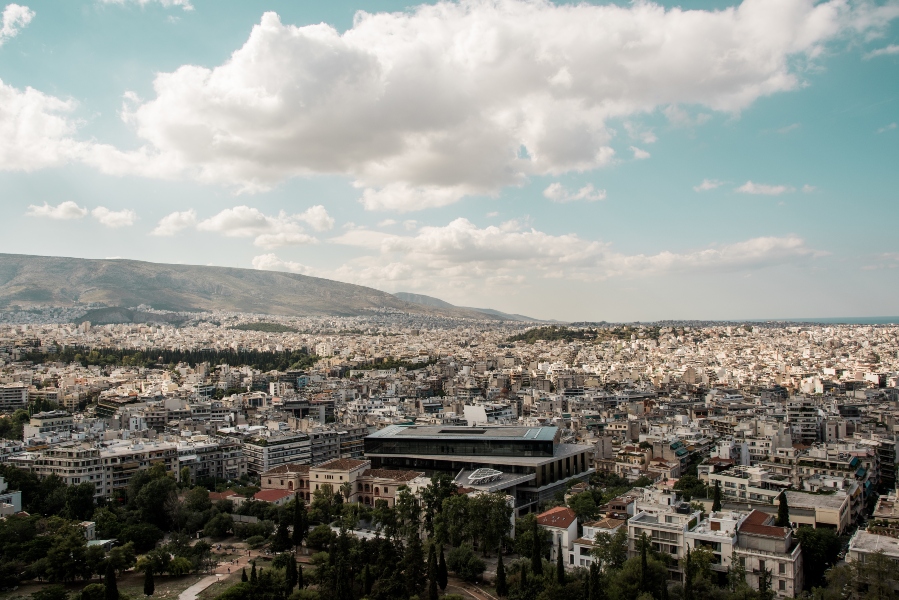Greek Real Estate Market in 2024: Stability, Challenges, and Opportunities for Investors

Πηγή Φωτογραφίας: freepik, Greek Real Estate Market in 2024: Stability, Challenges, and Opportunities for Investors
The Greek real estate market experienced significant developments and challenges throughout 2024.
Demand remained robust, keeping property prices elevated for another year. Lefteris Potamianos, CEO of Potamianos Real Estate Group, highlights several factors shaping the current market, influencing buyer decisions and professional strategies in the sector.
Demand Dynamics and Market Impact
Despite expectations of price declines, property values in Greece have remained stable, with some regions even seeing continued price increases, though at a slower pace. The primary driver of this stability is the ongoing supply-demand imbalance. According to Potamianos, the Greek market is predominantly driven by the low to middle-income demographic. Most Greek buyers are looking for properties under 120 sqm, with prices ranging between 400,000 and 450,000 euros. In contrast, foreign investors are primarily interested in luxury holiday homes priced much higher and tend to be larger. This demand from international buyers further bolsters the market. Areas around Athens, such as the Saronic Gulf and Evia, are particularly attractive for investment, especially for vacation properties.
Potamianos notes that opportunities within Athens are scarce, with square meter prices reaching 1,700 to 1,800 euros, even in traditionally more affordable neighbourhoods like Patisia and Kypseli. For investors, the focus is shifting to the periphery of Athens.

Renovation as a Value-Enhancing Factor
The condition of a property has become a crucial factor in its market value. Renovated properties are in high demand, as most buyers prefer not to take on the costs and complexity of renovation themselves. Potamianos suggests that renovation can increase a property’s value by up to 20%, though the renovation cost has surged, now exceeding 1,000-1,200 euros per square meter. However, a shortage of skilled labour for renovations, exacerbated by large development projects coupled with long renovation timelines, discourages buyers from considering properties in poor condition.
Government intervention, especially in managing bank-owned properties, could help ease market pressures. Potamianos believes that the disposal of such properties could boost supply and lead to price stabilization. Programs like “My House II” are also expected to stimulate demand, particularly for smaller and mid-sized properties.
Urban Planning and Legal Challenges
The Greek real estate market continues to grapple with issues related to urban planning, property electronic identification, and legal settlement procedures. Potamianos advocates for creating a unified body to oversee real estate management, which would coordinate efforts across multiple ministries to address these challenges.
One significant concern is creating a two-speed market due to decisions from the Council of State (CoE). Potamianos predicts that the resulting variations in market conditions, which differ by municipality and construction status, will create uneven competition in the real estate sector.
Buyer Profiles and Financing
Greek buyers fall into two main categories:
- Younger buyers (ages 40-45): Primarily relying on their income and financial support from parents.
- Older buyers (55-60): Using inheritance or savings to purchase holiday homes.
A notable trend in the current market is that around 80% of transactions are made with cash, a shift from the pre-crisis period when loans were the primary method of financing property purchases.
Conclusion
The Greek real estate market remains active, with investment opportunities in the periphery while urban centre prices stay high. Increased supply from banks’ “frozen” properties, resolving urban planning issues, and offering incentives for renovations could help stabilize the market. Potamianos concludes, “Maintaining reasonable price levels is essential to keep transactions feasible for all parties. Working with estate agents and valuers is key, as these professionals guide buyers and sellers to achieve fair and timely transactions.”
Πηγή: pagenews.gr
Διαβάστε όλες τις τελευταίες Ειδήσεις από την Ελλάδα και τον Κόσμο






Το σχόλιο σας